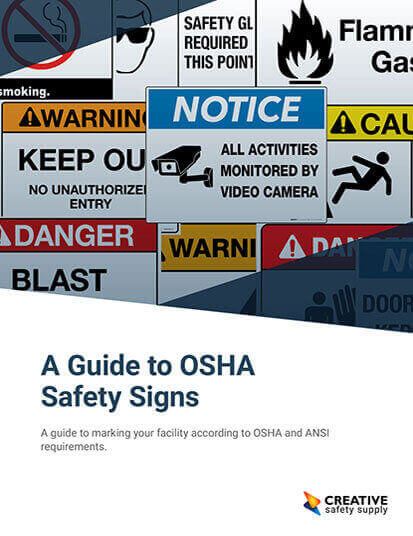
Working as a safety manager is a great job if you can find the right company to work for. In some cases, you can transition into this type of position by performing well in other roles, then getting trained by the existing safety professionals. For most people, however, it will be necessary to go through some formal steps to become qualified as a safety professional before starting to apply for these types of jobs.
- Consider Seeking a Degree
Most employers want their safety managers to have a bachelor’s degree. The degree can be in a number of different fields including occupational health and safety, public safety and engineering, or science and safety. Degrees in chemistry, biology, and general engineering can also be sufficient in many industries.
- Become Certified
Professional certifications that are focused on workplace safety are another great item to acquire. There are a number of different certifications that you can pursue. The Board of Certified Safety Professionals (BCSP) offers a certification, as does the National Association of Safety Professionals (NASP). It is not uncommon for people seeking employment in this field to gain a certification while also attending college or university for their degree. Other people will attempt to get a certification while working in another role.
- Join a Trade Association
Joining a trade association will offer many great benefits including ongoing training, networking opportunities, industry updates, and more. Some of the more popular trade associations include The American Society of Safety Engineers, the American Biological Safety Association, and others.
- Find Employment & Gain Experience
Those who are just starting out in the workforce will often want to find employment in a related field, if they can’t work directly as a safety manager. For example, many larger companies will have junior safety professionals, which work under a safety manager. This is a great way to build experience that can go on a resume while attempting to get a higher-level position.
- Always Be Learning
Even once you have a job as a safety manager, you will want to continue learning and keeping up to date with the latest best practices. This will help ensure you are able to do your job well, and can even seek promotions or other advancements within the safety manager field.
Additional Safety Manager facts:
- According to the U.S. Bureau of Labor Statistics, the median annual wage for occupational health and safety specialists, which includes safety managers, was $76,340 in May 2020 Source: https://www.assp.org/education/certificate-programs/safety-management
- The job outlook for this occupation is projected to grow 4% from 2019 to 2029, which is about as fast as the average for all occupations Source: https://www.assp.org/education/certificate-programs/safety-management
- Safety managers can work in various industries, such as construction, manufacturing, mining, healthcare, and government Source: https://naspweb.com/certified-safety-manager-csm/
- Safety managers are responsible for developing, implementing, and evaluating safety policies, programs, and procedures to prevent injuries, illnesses, and environmental damage in the workplace Source: https://naspweb.com/certified-safety-manager-csm/
- Safety managers also conduct inspections, audits, investigations, and training to ensure compliance with federal, state, and local regulations, as well as industry standards and best practices Source: https://naspweb.com/certified-safety-manager-csm/
- Safety managers need to have strong communication, analytical, problem-solving, and leadership skills, as well as a keen attention to detail and a high level of integrity Source: https://naspweb.com/certified-safety-manager-csm/
- Safety managers can enhance their professional development and credibility by obtaining certifications from recognized organizations, such as the Board of Certified Safety Professionals (BCSP) and the National Association of Safety Professionals (NASP) Source: https://hiring.monster.com/resources/job-descriptions/maintenance/safety-manager/
- Safety managers can also join trade associations, such as the American Society of Safety Professionals (ASSP) and the American Biological Safety Association (ABSA), to access networking, education, and advocacy opportunities Source: https://www.hseblog.com/safety-manager-interview-questions/
Similar Questions
- What does a safety professional do?
- Who regulates workplace safety?
- What are hazard controls?
- What are workplace safety requirements?
- What is the purpose of using safety equipment?
- What’s inside a first aid kit?
- What are the benefits of a Safety and Health Program?
- What is an occupational illness or injury?
- What is rotational shiftwork?


